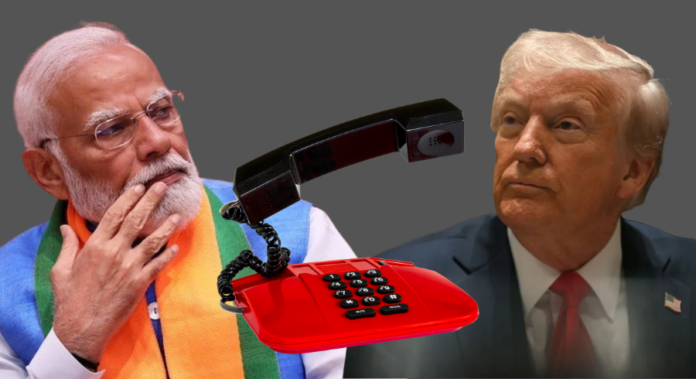A tense phone call between US President Donald Trump and Indian Prime Minister Narendra Modi over a May ceasefire between Pakistan and India has become a pivotal moment in the worsening relations between the two countries, Bloomberg reported, adding that the phone call took place during the G7 summit in Canada in June, where Modi attended as a guest.
The dispute emerged after Trump repeatedly stated that his intervention had prevented nuclear escalation between India and Pakistan. India’s diplomats pushed back against these claims; however, the report says that the tensions peaked in a June 17 phone call with Modi, when Trump left the G7 summit early and couldn’t meet the Indian leader in person.
In the 35-minute call, Modi emphasised that India had directly engaged in the ceasefire discussions and rejected any form of mediation. He added that India would never accept such intervention in its bilateral matters, especially after Trump decided to host Pakistan’s Army Chief General Asim Munir at the White House.
“While India had no problem if Trump met Pakistan’s civilian leaders, hosting Munir was seen as giving legitimacy to a military that Modi’s government accuses of supporting militant groups. Wary that Trump would look to orchestrate a meeting between Munir and Modi, the Indian leader turned down an invitation to stop by the White House on the way back from Canada, adding that he was also committed to visiting Croatia,” Bloomberg added, citing official Indian sources.
Although the US never made a direct request for Modi to acknowledge Trump’s role in the ceasefire, India saw a shift in tone from the White House after that phone call. Once Trump began publicly attacking India, sources added, it was clear the episode marked a turning point in the broader relationship.
The rift deepened in late July when Trump imposed a 50% tariff on Indian exports to the US, including penalties on Russian oil imports, further exacerbating the trade dispute.
Trump also criticised India for its handling of the Ukraine crisis, labelling the country’s economy as “dead” and accusing it of having “obnoxious” trade barriers. His comments have undermined decades of US efforts to build a strategic partnership with India, particularly in countering China’s rise.
While Modi and Trump haven’t chatted since that June call, the Indian leader on Friday spoke with Russian President Vladimir Putin and invited him to visit later this year.
“The Russia relationship is old, time-tested,” said Navdeep Suri, India’s former high commissioner to Australia. “All those days when the US was letting New Delhi down, including at the United Nations, Moscow stood behind India like a rock. Oil is a small part of the current story. India won’t like to be seen as capitulating under pressure.”
Later this month, Modi has plans to visit China for the first time in seven years and meet with President Xi Jinping on the sidelines of a regional security summit.
The US-India relationship, which had blossomed under previous administrations, now faces uncertainty. Experts warn that Trump’s actions could push India closer to China, a long-standing ally, at the cost of a once-promising partnership with the US. This shift could have long-term ramifications, not just for US-India relations, but for the broader Indo-Pacific strategy.
Analysts caution that Trump’s aggressive tactics on trade and energy could yield immediate results but risk undermining India’s efforts to reduce dependence on Russian arms, further complicating its foreign policy landscape.
“The carefully crafted consensus of successive administrations has brought the two largest democracies together for almost three decades, and the administration’s actions could endanger this progress if not brought to quick resolution,” said Eric Garcetti, former US envoy to India. “I hope that cooler minds will prevail in both capitals. There’s too much at stake.”
Both India’s Ministry of External Affairs and the White House avoided commenting on how US-India relations have deteriorated.
During a briefing on Thursday, State Department deputy spokesperson Tommy Pigott said Trump was taking action to address concerns about trade imbalances with India and the nation’s purchases of Russian oil.
However, Modi has been defiant after Trump’s escalation this week, vowing to protect the interests of small-scale farmers while his government blasted the US tariffs as “unfair, unjustified and unreasonable.”




